Bees can play football. Books used to be put on shelves with their spines facing inwards. A German airline allows an extra kilo of hand luggage, provided it’s books. Who knew? QI knew and you can too in 1423 QI Facts to Bowl You Over.
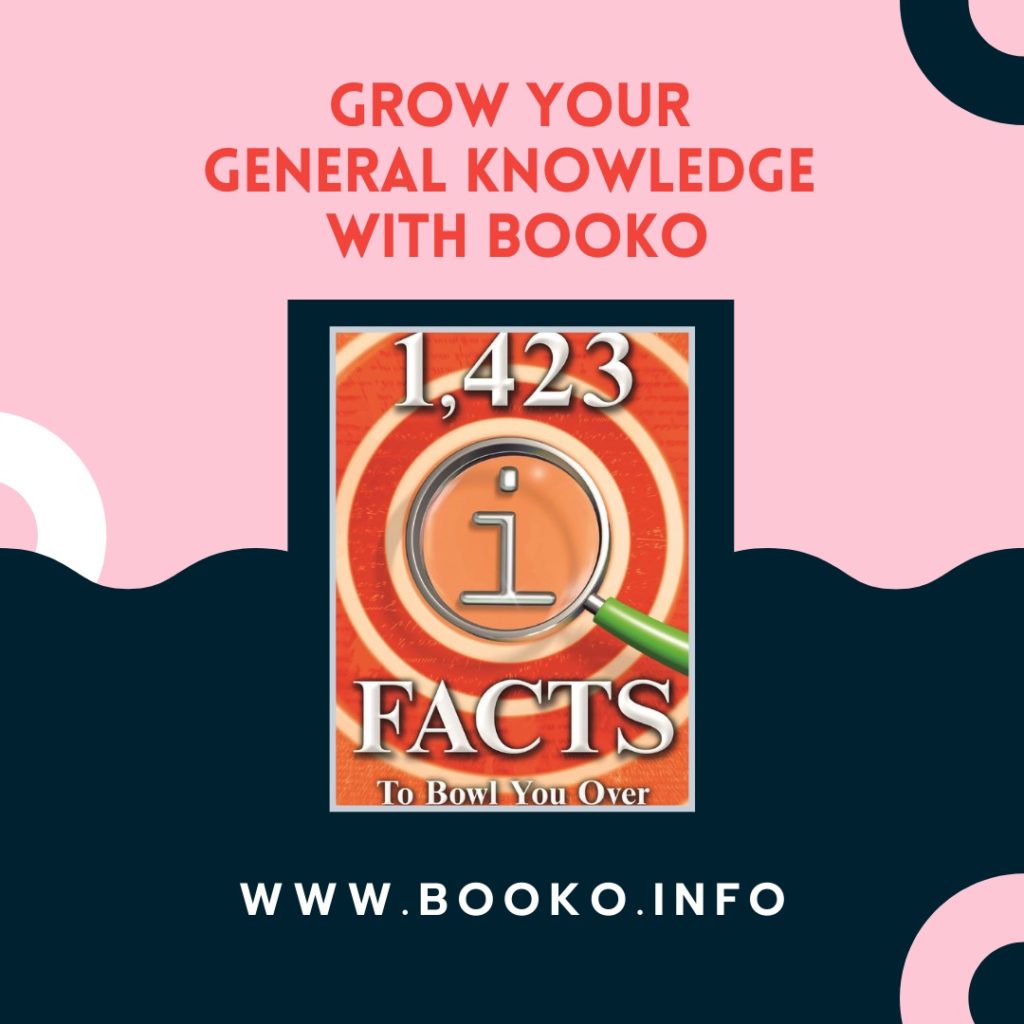
Bees can play football. Books used to be put on shelves with their spines facing inwards. A German airline allows an extra kilo of hand luggage, provided it’s books. Who knew? QI knew and you can too in 1423 QI Facts to Bowl You Over.

How Food Works brings the science of food to life. Through a highly visual approach that uses bold infographics, explore the good, the bad, the confusing, and the trending world of food.
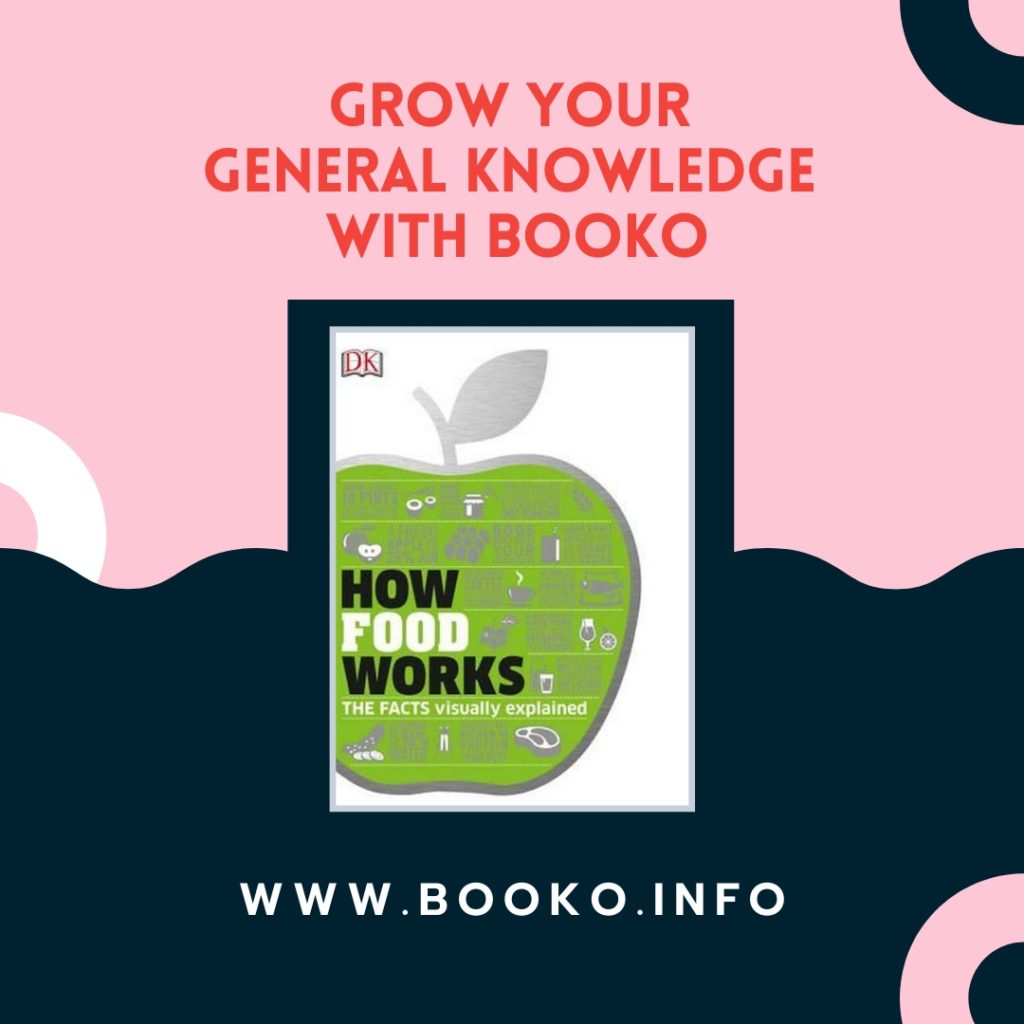
The Hidden Facts of Fashion is not just a book of random facts – it’s a combination of fashion, fun, surprise, knowledge, and helpful hacks.

“General Knowledge” are the bits and pieces of information – some useful, some mundane, some weird and wonderful – that we pick up without intense study into specific topics. Having general knowledge can help us win a quiz, win an argument, and become more entertaining (!?). Satisfy your curiosity about the world around you, by dipping into these funny, surprising and informative books:
On This Day in History by Dan Snow
Dan Snow is one of Britain’s favourite historians, the creator of the hugely successful History Hit TV channel and podcast. On This Day in History is his carefully chosen collection of 365 historical events – one for each day of the year. Crisscrossing 3000 years of Western civilisation, Dan Snow describes events that range from important (D Day), to influential (the meeting of Lennon and McCartney), to obscure (the Anglo-Zanzibar war, the shortest war in history), and even strange (Napoleon escaping from rabbits). He also raises the interesting question of what we choose to remember, and what we might have forgotten.
The Second Book of General Ignorance by John Lloyd and John Mitchinson
Named after the final round topic of the long-running quiz show QI (short for Quite Interesting), this second instalment of trivia focusses on General Ignorance, as in common mistakes and misunderstandings found in our “General Knowledge”. Read this and you’ll realise that Napoleon wasn’t short, octopuses actually have six legs, and oranges often aren’t orange. In revealing these curious misconceptions, Johns Lloyd and Mitchinson, respectively the series-creator and head researcher for QI, also try to show how these urban myths and mistaken assumptions arise. With a foreword by Stephen Fry, the original host of QI.
The Big Ideas Box (Philosophy, Psychology, Sociology) by DK
This Big Ideas Box contains three titles from the Big Ideas Simply Explained series, covering Philosophy, Psychology and Sociology. True to DK’s form, this series uses innovative visual design to make information interesting and easier to understand. A mix of high-impact graphics, succinct summaries and more detailed articles help to tease out these huge and complex areas of learning – covering 2500 years’ worth of philosophical thinking, the development of psychology since the Ancient Greeks, and of sociology since the Middle Ages. These primers will invite teens and adults to think, discuss and seek out further reading.
Brilliant Maps: an Atlas for Curious Minds by Ian Wright
Brilliant Maps is not so much about geography, as a smart and imaginative way to use maps to explain interesting facts about people, countries, culture, and more. (Ian Wright would argue that maps are the original infographic.) The hundred maps in this book present information that range from the sobering (number of executions by state) to the curious (countries with no rivers) and whimsical (countries with no McDonald’s).
Linked to the Brilliant Maps website, the facts presented here are thought-provoking, revelatory, and simply fun.
Answers to Questions You’ve Never Asked: Explaining the “What If” in Science, Geography and the Absurd by Joseph Pisenti
This book of fun facts and strange questions will be especially appealing to kids and teens. Joseph Pisenti, better known as RealLifeLore, is a popular YouTuber whose main channel contains video musings on the absurd side of history, geography, economics and science. Answers to Questions You’ve Never Asked combines nonsensical humour and serious analysis to answer off-beat questions such as “Where can I move so that I will never be tempted by McDonalds again?”, and “If Plato came back to life what would he think of modern democracy?”. A fantastic encouragement to stay curious about the world around us.
Interesting Stories for Curious People by Bill O’Neill
Bill O’Neill is a huge trivia buff who has written books of fun facts covering topics as diverse as World War I, American Presidents, and rock music. Interesting Stories for Curious People is his trivia book about a bit of everything – a collection of entertaining and fascinating stories about history, science, pop culture and just about anything else you can think of. Great for aspiring trivia champs!
Want to know which nation is ruled by a dentist-turned-dictator? Where to find taxis shaped like coconuts? And who watches competitive cockroach racing? Then The Big World of Fun Facts is the book for you!
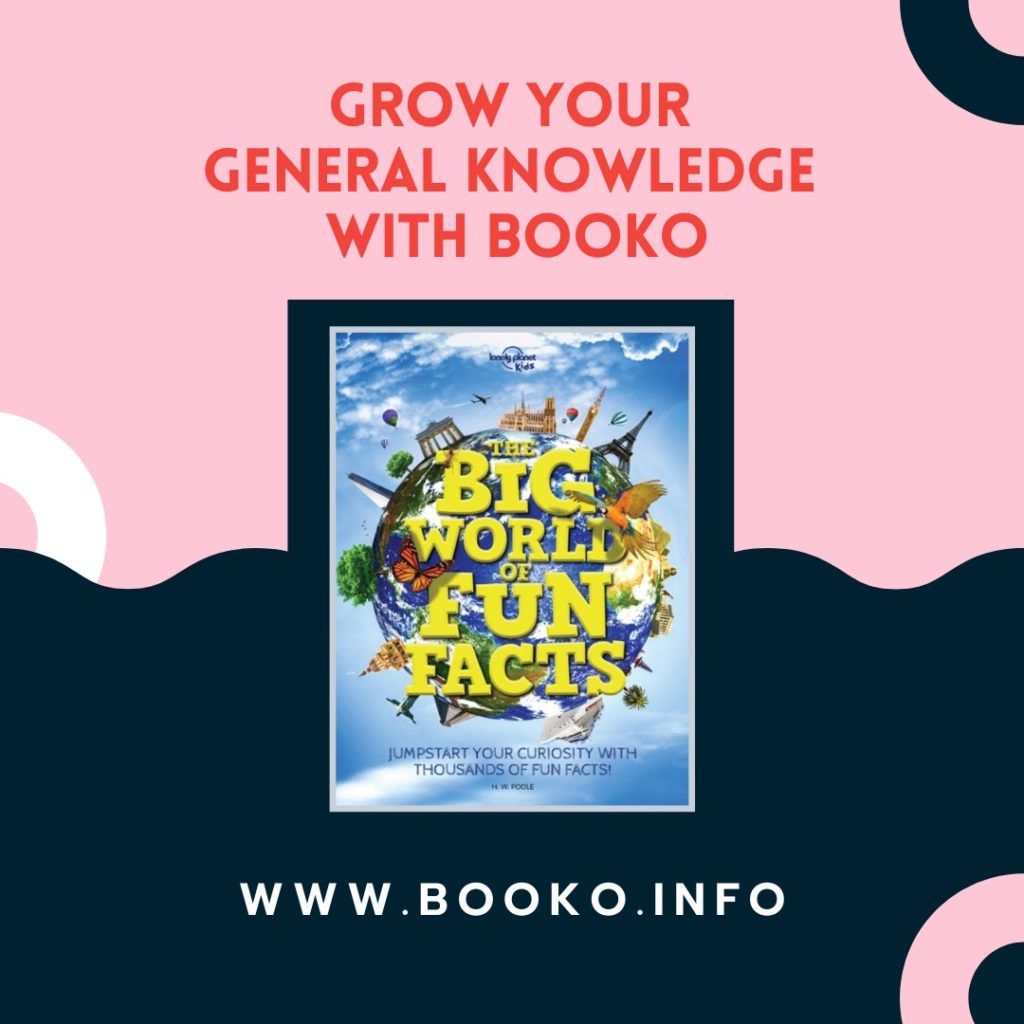
Today’s book is a little bit of a different take on growing our general knowledge. Using captivating stories to illustrate research in psychology and management, Rice University professor Scott Sonenshein examines in his hugely popular book Stretch, why some people and organisations succeed with so little, while others fail with so much.
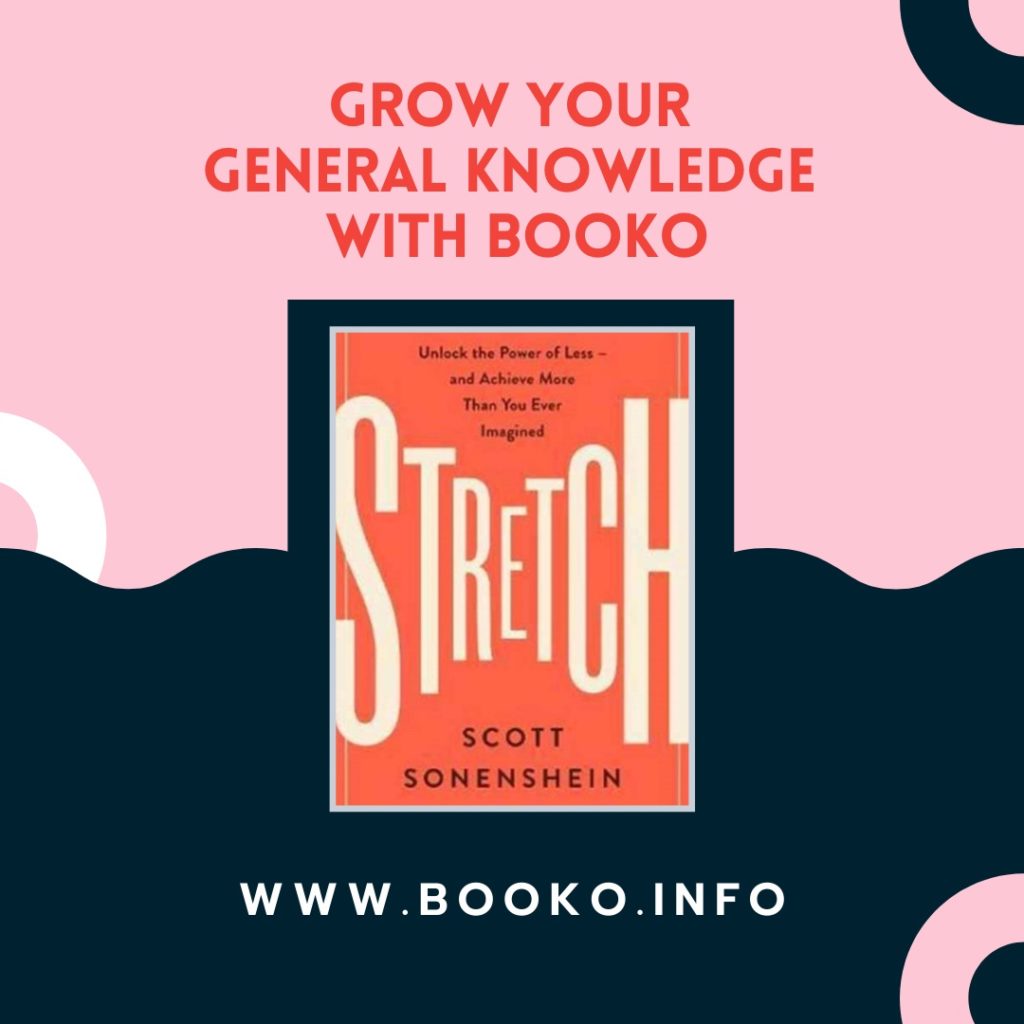
No one challenges our shared assumptions like Malcolm Gladwell. Using stories of deceit and fatal errors he invites us to rethink our thinking in these troubled times in his newest book Talking to Strangers.
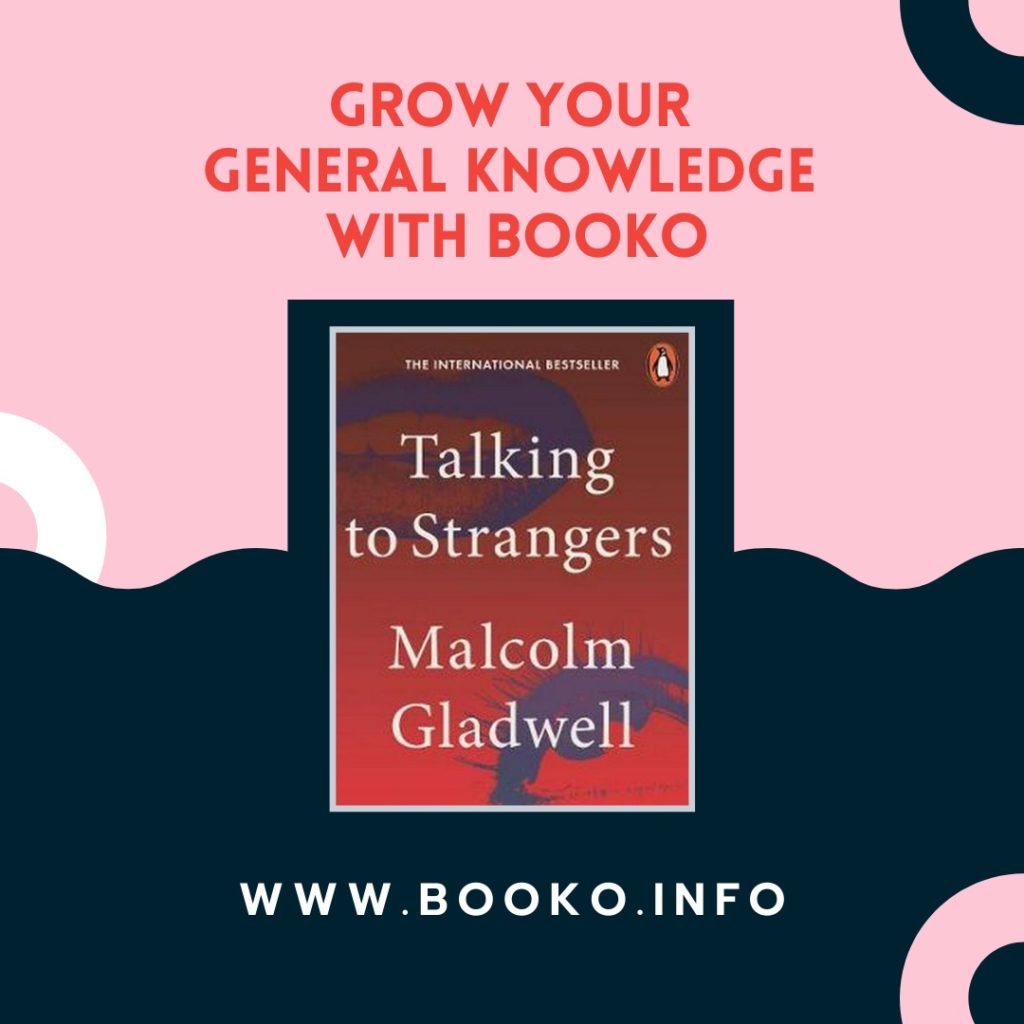
In Thing Explainer, Randall Munroe explains things using only drawings and a vocabulary of just our 1,000 most common words to show how important things work: from the nuclear bomb to the biro.
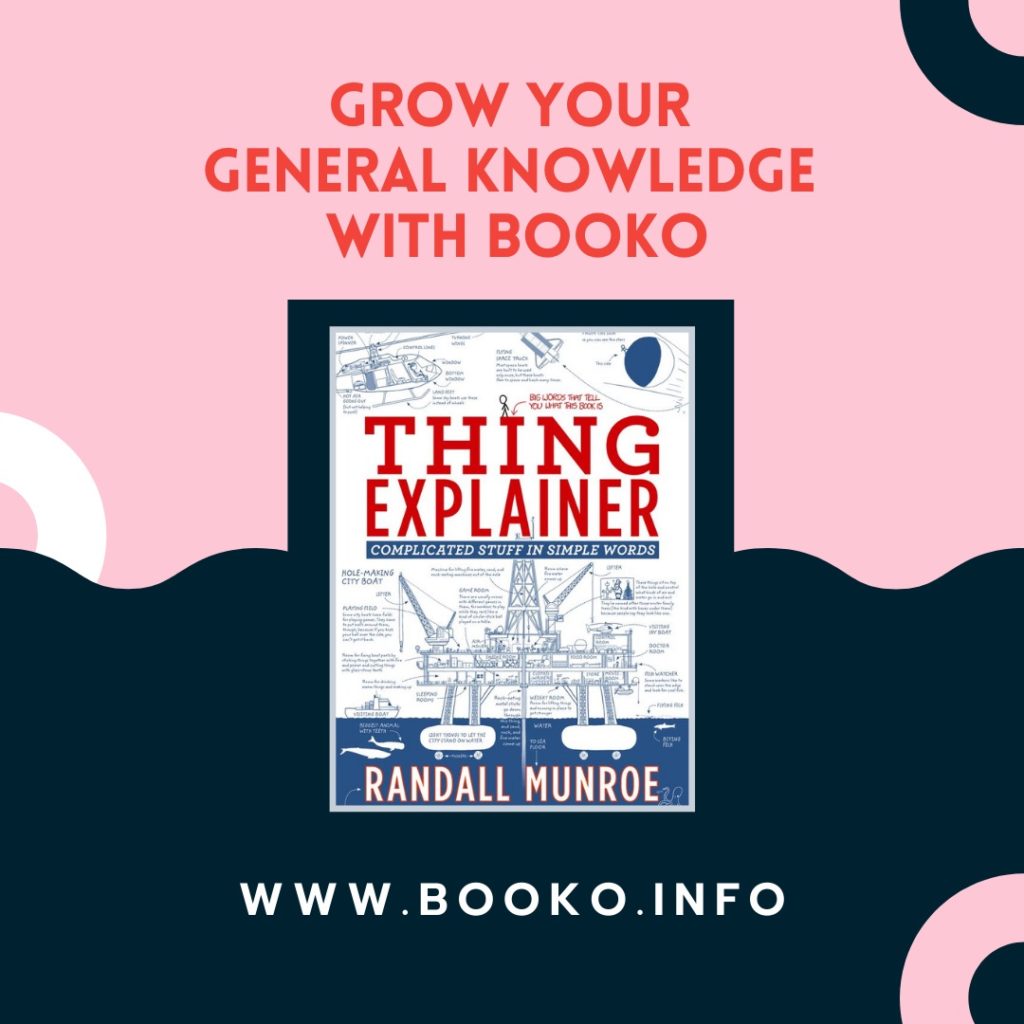
We love The Science Book, it’s the quickest way to know nearly everything in the whole wide world…nearly. That’s why it’s our pick for the day.
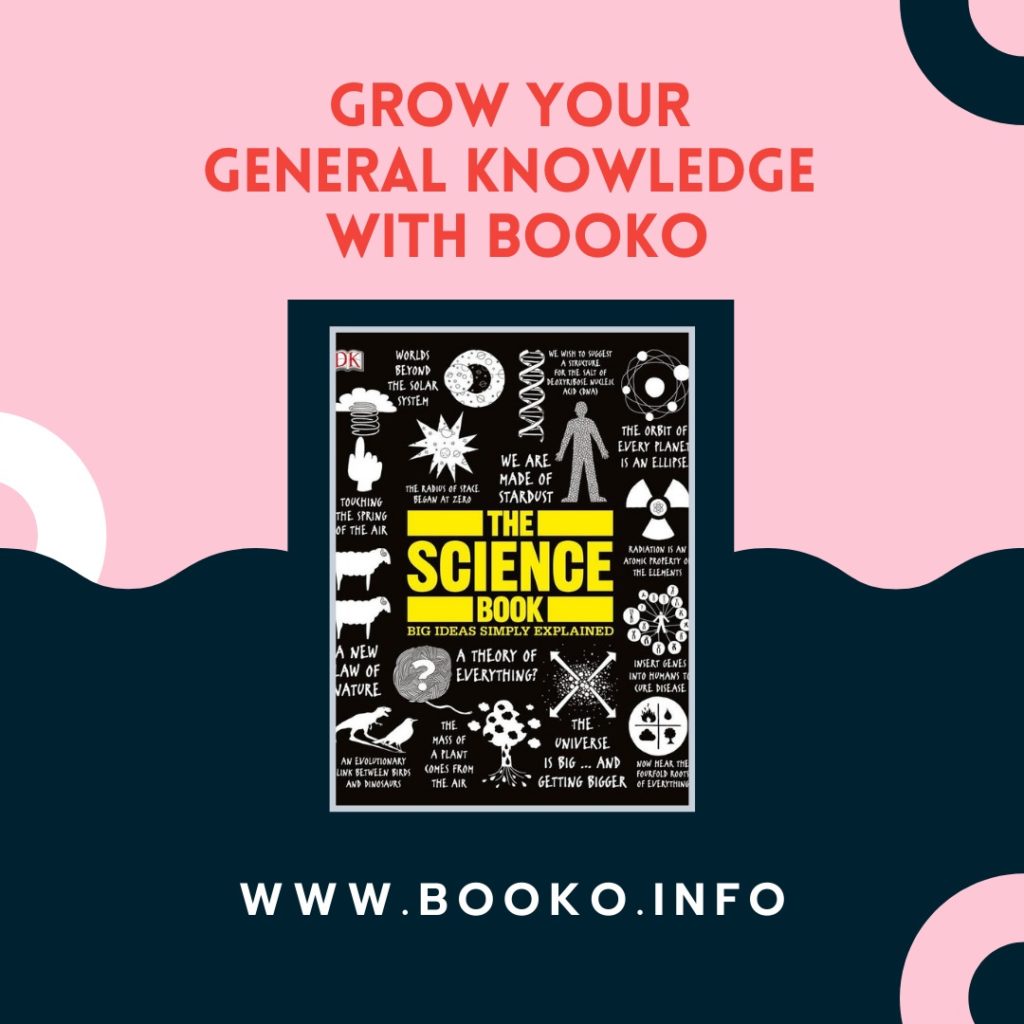
This isn’t your usual history book list. In fact, some of the books aim to give us quite a different view of what we have learned previously. Which is why we really enjoy them. It’s easy to forget that history books aren’t just books brimming with facts of bygone eras, but rather we can consider them stories of events to be questioned, viewed from different angles and full of scandal and intrigue.
SPQR by Mary Beard
Hailed by critics as animating and with a wonderful ability to bring the past to life in a way that makes your hair stand on end, SPQR spans nearly a thousand years of history. Mary Beard narrates and examines not just how we think of ancient Rome but challenges the comfortable historical perspectives that have existed for centuries. With its nuanced attention to class, democratic struggles, and the lives of entire groups of people omitted from the historical narrative for centuries, SPQR will to shape our view of Roman history for decades to come.
Headstrong by Rachel Swaby
Headstrong delivers a powerful and entertaining response to the question: Who are the role models for today’s female scientists? Covering Nobel Prize winners and major innovators, as well as lesser-known but hugely significant scientists who influence our every day, these engaging profiles span centuries of courageous thinkers and illustrate how each subject’s ideas developed, from their first moment of engagement with science through the research and discovery for which they’re best known. Finally, it gives these 52 lives the attention and respect they deserve with the aim to encourage and inspire a new generation of girls to put on their lab coats.
Sapiens by Dr. Yuval Noah Harari
Dr. Yuval Noah Harari makes serious non-fiction cool again.
One hundred thousand years ago, at least six different species of humans inhabited Earth. Yet today there is only one: homo sapiens. What happened to the others? And what may happen to us? Most books about the history of humanity pursue either a historical or a biological approach, but Dr. Yuval Noah Harari breaks the mold with this highly original book that begins about 70,000 years ago with the appearance of modern cognition. From examining the role evolving humans have played in the global ecosystem to charting the rise of empires, Sapiens integrates history and science to reconsider accepted narratives, connect past developments with contemporary concerns, and examine specific events within the context of larger ideas. Dr. Harari also compels us to look ahead, because over the last few decades humans have begun to bend laws of natural selection that have governed life for the past four billion years. We are acquiring the ability to design not only the world around us, but also ourselves. Where is this leading us, and what do we want to become?
You can view Dr. Yuval Noah Harari’s other books here.
Guns, Germs and Steel by Jared Diamond
Drawing together ideas from history, geography, economics and anthropology, Guns, Germs and Steel offers compelling theories and surprising insights into the development of societies, it is a hugely influential book that helped to establish Popular Science as a genre. Jared Diamond examines why some civilisations are more successful than others, in terms of wealth and political power, despite no inherent advantage in genetics or intelligence. He theorises that the tools of success are guns (superior weapons for military might); germs (Eurasian diseases weakening local populations, making them easier to conquer) and steel (advanced technology facilitating imperialism) and that they all arose from environmental conditions that allowed early adoption of agriculture.
A Short History of Nearly Everything by Bill Bryson
Bill Bryson describes himself as a reluctant traveller, but even when he stays safely at home he can’t contain his curiosity about the world around him. A Short History of Nearly Everything is his quest to understand everything that has happened from the Big Bang to the rise of civilisation, how we got from there, being nothing at all, to here, being us. Bill Bryson’s challenge is to take subjects that normally bore the pants off most of us, like geology, chemistry and particle physics, and see if there isn’t some way to render them comprehensible to people who have never thought they could be interested in science. The ultimate eye-opening journey through time and space, A Short History of Nearly Everything reveals the world in a way most of us have never seen it before.
You can see a list of Bill Bryson’s other books here.
The History of the Ancient World by Susan Wise Bauer
Susan Wise Bauer presents us with a lively and engaging narrative history showing the common threads in the cultures that gave birth to our own. This is the first volume in a series that tells the stories of all people, connecting historical events from Europe to the Middle East to the far coast of China, while still giving weight to the characteristics of each country. Susan Wise Bauer provides both sweeping scope and vivid attention to the individual lives that give flesh to abstract assertions about human history. Dozens of maps provide a clear geography of great events, while timelines give the reader an ongoing sense of the passage of years and cultural interconnection. This old-fashioned narrative history employs the methods of “history from beneath” literature, epic traditions, private letters and accounts to connect kings and leaders with the lives of those they ruled. The result is an engrossing tapestry of human behaviour from which we may draw conclusions about the direction of world events and the causes behind them.
You can see more of Susan Wise Bauer’s work here.
Enjoy!